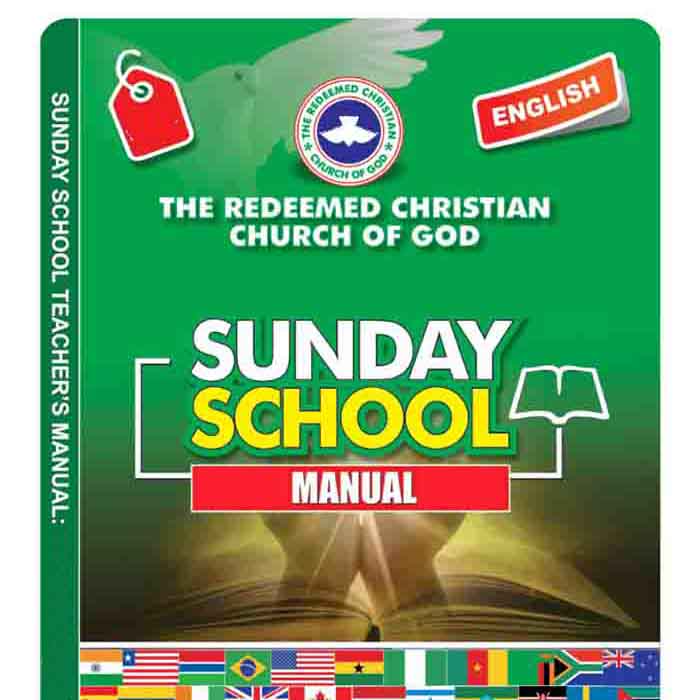This is RCCG Sunday School Teachers manual for the adult class.
Today’s Lesson 9 topic: PROPHECY
Date: 2 November 2025
Read:

Note: Check RCCG SUNDAY SCHOOL HYMN LYRICS
RCCG SUNDAY SCHOOL TEACHERS MANUAL LESSON 9 (2 NOVEMBER 2025)
TOPIC: PROPHECY
OPENING PRAYER:
Father, help me understand the place and purpose of prophecy.
PREVIOUS KNOWLEDGE:
The teacher should allow the assistant teacher to review the lesson for the previous week.
BIBLE READING
BIBLE PASSAGE: 1 Corinthians 14:1-5.
1 Follow after charity, and desire spiritual gifts, but rather that ye may prophesy.
2 For he that speaketh in an unknown tongue speaketh not unto men, but unto God: for no man understandeth him; howbeit in the spirit he speaketh mysteries.
3 But he that prophesieth speaketh unto men to edification, and exhortation, and comfort.
4 He that speaketh in an unknown tongue edifieth himself; but he that prophesieth edifieth the church.
5 I would that ye all spake with tongues but rather that ye prophesied: for greater is he that prophesieth than he that speaketh with tongues, except he interpret, that the church may receive edifying.
MEMORY VERSE:
“Follow after charity, and desire spiritual gifts, but rather that ye may prophesy.” 1
Corinthians 14:1.
INTRODUCTION
Prophecy is a spiritual gift and ministry through which God communicates His mind and will to His people. It can come in diverse forms to meet the specific needs of individuals and the church.
Prophecy is a vital aspect of Christian living that enables believers to receive guidance, encouragement, and edification.
TEACHER’S DIARY
LESSON AIM:
To teach the church, the usefulness of prophecy to Christians.
TEACHING OBJECTIVES:
Through this study, students are expected to:
- Understand the dimensions of prophecy.
- Identify the benefits of prophecy.
TEACHING PLAN:
To achieve the above-stated objectives, the teacher should
- Allow the students to recite the memory verse read the Bible passage, contribute to the discussion, and do class activities and assignments.
- Allow the Assistant Teacher to see to the wellbeing of the class, and mark attendance and assignment.
- Teach the lesson outline, summarise, conclude, evaluate the lesson and give assignments.
TEXT REVIEW: 1 Corinthians 14:1-5
A. The apostle Paul admonishes the Corinthian church in the above scripture concerning speaking in tongues and prophesying. Kindly identify three (3) differences between speaking in tongues and prophesying
i….
ii. ..
iii…
TEACHING METHOD:
The Lecture Method.
TIME MANAGEMENT:
The teacher should apply the two-lesson outline teaching time.
LESSON OUTLINE 1: UNDERSTAND PROPHECY
A. Here are some basic facts about prophecy:
- Prophecy is the act of speaking God’s words under divine inspiration (Job 32:8).
- It serves as a channel through which God’s truth, plans, and purposes are revealed (Numbers 12:6).
- Prophecy is not rooted in human imagination but in God’s authority and wisdom (Corinthians 14:3).
- In Ezekiel 37:1-14, the prophet was instructed by God to speak life to dry bones, demonstrating the transformative power of prophecy.
- Prophecy is inspired by God and directed toward His purposes (2 Peter 1:21).
- Revelation 19:10 highlights that “the testimony of Jesus is the spirit of prophecy,” indicating that prophecy ultimately points to Christ and His will.
B. Prophecy manifests in different forms, depending on God’s intention for the message. For instance:
1. Foretelling: Predicting future events as revealed by God. Examples include prophecies about the Messiah and end-time events (Isaiah 7:14; Matthew 24).
2. Forthtelling: Comforting a specific audience through the written word of God (Nehemiah 8:8-10). Addressing a current situation and proffering solution (2 Kings 4:1-7; 2 Kings 6:25; 7:1).
Forthtelling can also serve as a correction.
3. Discernment: Providing insight into hidden truths or circumstances, often to bring clarity (2Kings 5:20-26; Acts 16:16-19).
C. Believers should note that not all prophecies are from God, which makes it vital to evaluate every prophetic word with Scriptures and godly principles (1 Thessalonians 5:20-21; Deuteronomy 18:20-22)
CLASS ACTIVITY 1:
Have you ever believed ur questioned any prophecy? How did you establish its authenticity or otherwise?
LESSON OUTLINE 2: THE BENEFITS
Prophecy serves several key purposes that help to strengthen the church and contribute to its growth:
- Edification: Prophecy builds up the body of Christ, fostering spiritual growth and unity (1Corinthians 14:3-4).
- Exhortation: Prophecy encourages and challenges believers, motivating them to stay faithful and pursue righteousness (1 Corinthians 14:3; Isaiah 40:2).
- Comfort: Prophecy provides reassurance and peace in times of distress, reminding believers of God’s faithfulness and love (1 Corinthians 14:3; 1 Kings 17:13-16).
- Guidance: Through prophecy, God offers direction and wisdom for decision-making, helping His people align with His will (2 Kings 6:8-12).
CLASS ACTIVITY 2:
What can you say about commercial prophets?
CONCLUSION: RCCG Sunday School Teachers Manual 2 November 2025
The prophetic ministry is important for the edification of the body of Christ.
EVALUATION:
Distinguish between foretelling and forthtelling.
CLOSING PRAYER:
Father, let your church enjoy all the benefits of prophecy in Jesus’ name.
ASSIGNMENT: RCCG Sunday School Teachers Manual Lesson 9
Mention five (5) benefits of prophecy to an individual (2×5=10 Marks).
Follow RCCG Live on:


Leave a Reply